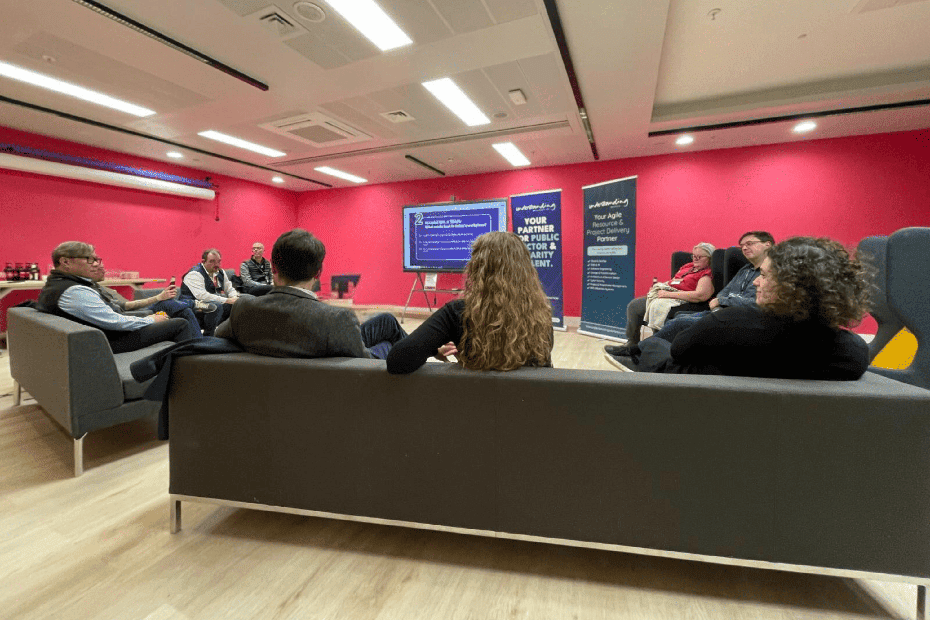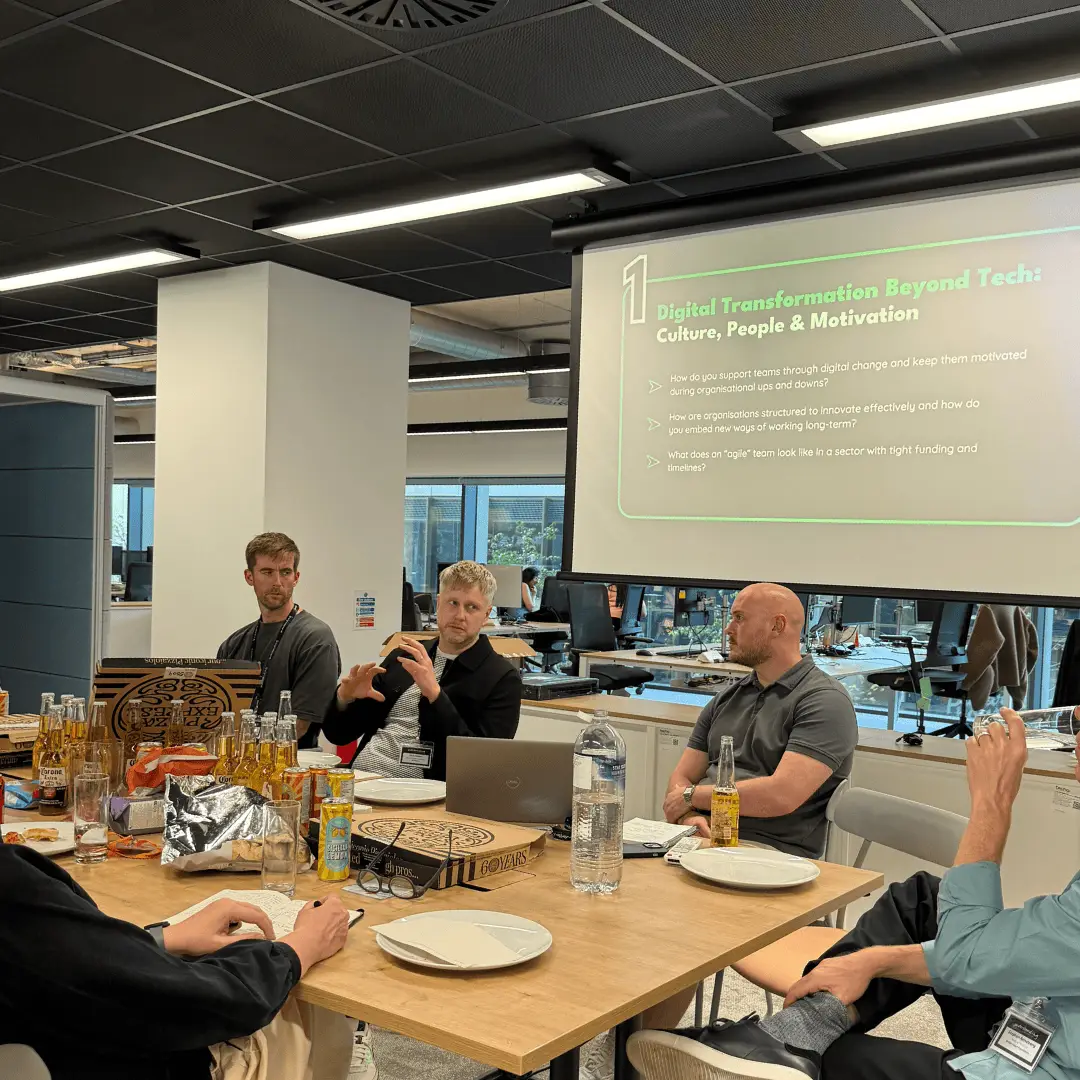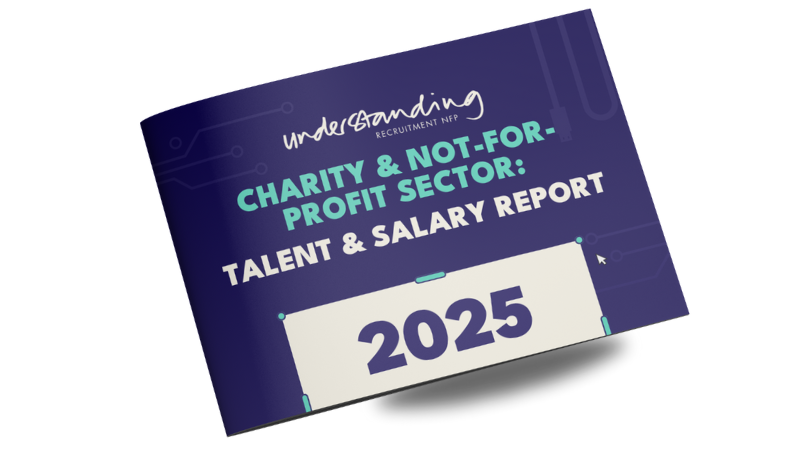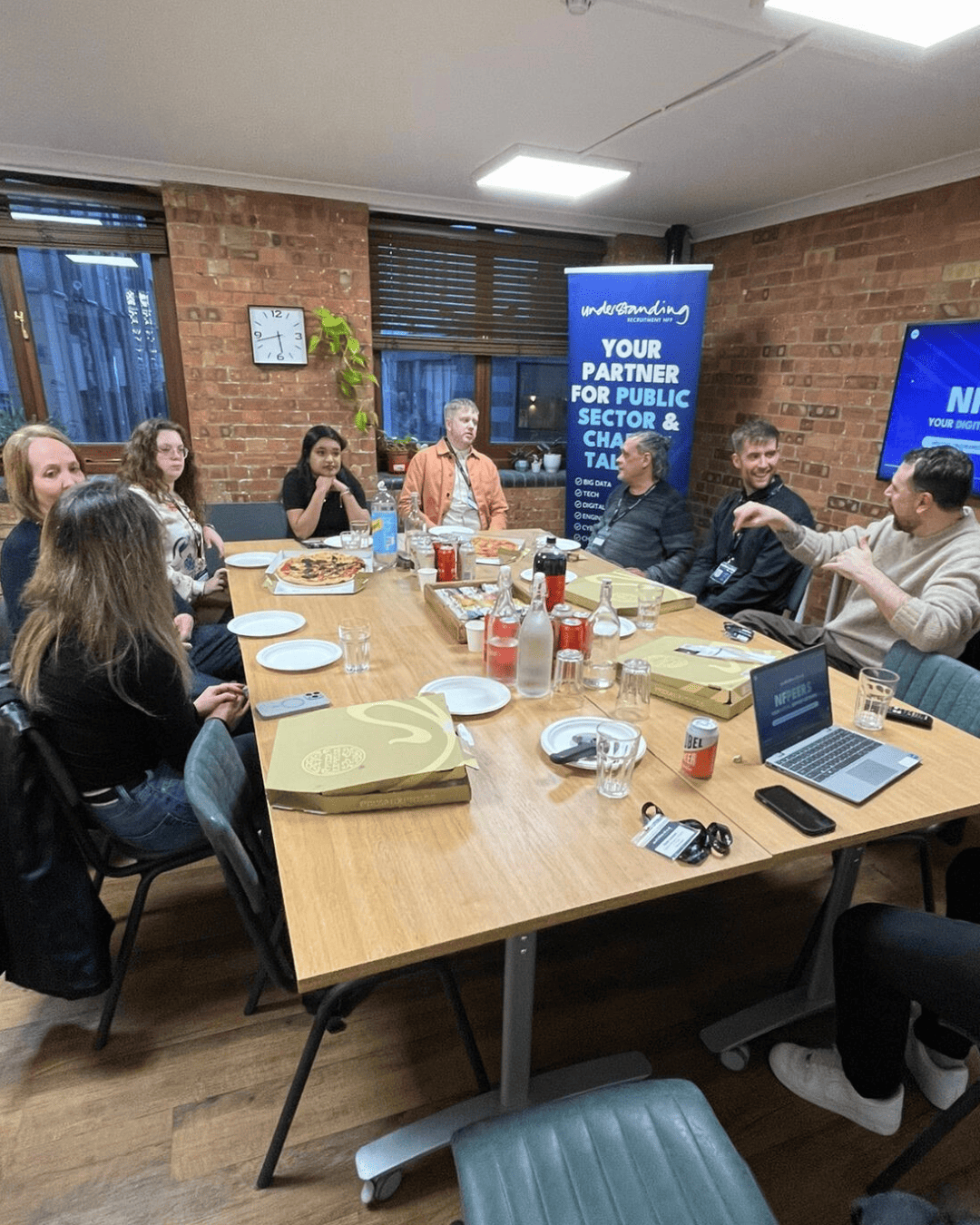We were lucky enough to be able to host our fourth NFPeers Event at Breast Cancer Now’s new offices. As always, this event series is a great opportunity to bring together data professionals from across the not-for-profit sector for an engaging evening of discussions on some of the most pressing challenges and opportunities they are currently facing. With this session having a focus on data governance, managing teams and current trends, it was a great opportunity to share insights, learn from peers, and explore how not-for-profits can continue to evolve in a rapidly changing landscape.
Data Governance: Tools, Challenges, and Best Practices
Data governance is fundamental to any organisation, ensuring that data is accurate, secure, and properly managed. However, for not-for-profits, where resources and technical expertise can sometimes be limited, effective data governance can be particularly challenging. At the NFPeers event, data leaders from across the sector shared insights into these challenges, explored the role of tools like Microsoft Purview, and discussed how non-profits can strike the right balance security, compliance, and accessibility.
The Biggest Data Governance Challenges
A key takeaway from the discussion was that while data governance is essential, it often competes with other priorities in resource-strapped non-profits. The main challenges highlighted by attendees included:
Limited resources and expertise - Many organisations lack dedicated data governance roles, making it difficult to implement best practices effectively. Without skilled personnel, data governance often becomes a secondary responsibility for teams already stretched thin.
Data quality and integrity - Ensuring that data is accurate, consistent, and reliable remains an ongoing struggle. Poor data quality can lead to ineffective decision-making and lost opportunities for impact.
Compliance and security pressures - As regulatory requirements tighten, non-profits must ensure they comply with evolving data protection laws while also safeguarding sensitive information. Many organisations are navigating these complexities with limited legal or compliance support.
Do Tools Like Microsoft Purview Make Data Governance Easier?
Opinions were split on the effectiveness of Microsoft Purview and similar tools. Some attendees saw these platforms as valuable assets in centralising data governance, offering automated classification, labelling, and compliance tracking that could significantly reduce manual effort. For organisations with the right expertise, tools like Purview could improve visibility, streamline processes, and enforce governance policies more effectively.
However, others cautioned that these tools could introduce additional complexity, particularly for non-profits without dedicated IT teams. Some organisations reported struggling with implementation, finding that without sufficient internal knowledge and investment in training, tools like Purview risked becoming underutilised or misconfigured. The discussion reinforced that while governance tools can be powerful, their success depends on an organisation’s ability to integrate them effectively into existing workflows.
Balancing Data Security, Compliance, and Accessibility
One of the most critical challenges discussed was how to balance the need for security and compliance with the practical need for accessible and usable data.
Many attendees emphasised that governance frameworks should not become barriers to collaboration. While protecting sensitive data is crucial, overly restrictive policies can prevent staff from accessing the information they need to make informed decisions. The key, participants agreed, is developing governance strategies that embed security and compliance into everyday processes without creating unnecessary friction.
The conversation underscored that data governance is not just about compliance. It is about enabling organisations to use data responsibly and effectively. As non-profits continue to refine their approaches, investing in training, fostering a culture of data stewardship, and selecting the right tools for their specific needs will be crucial in navigating the evolving data landscape.

Managing Teams in Today’s Workplace: Balancing Collaboration, Well-being, and AI
As the workplace continues to evolve, organisations must adapt to new ways of working that prioritise flexibility, well-being, and inclusivity. The second part of our NFPeers event focused on the evolving nature of team management, particularly in the context of flexible and hybrid work environments, people-first leadership, and the role of AI in enhancing team productivity.
Flexible & Hybrid Work: What’s the Best Balance for Collaboration?
The discussion began with a focus on the flexible and hybrid work model, which has become increasingly popular in recent years. While many non-profits have adopted flexible working arrangements, finding the right balance between remote work and in-person collaboration remains a challenge.
Some organisations, however, have expressed a desire to bring staff back into the office, believing that in-person work fosters better collaboration and strengthens organisational culture. Participants discussed the challenges and benefits of this approach, especially as the demand for flexible work options remains strong.
Other key discussion points included:
The need for clear communication and boundaries to ensure that teams can collaborate effectively, regardless of whether they’re working remotely or in the office.
Fostering a sense of connection: How do you maintain a strong organisational culture and team cohesion when colleagues are spread out?
The role of technology: Microsoft Teams make it easier to connect remotely, but they also require thoughtful implementation to avoid information overload.
The challenge of meeting fatigue: Some participants discussed the increasing number of meetings that people feel pressured to attend, even when those meetings may not be necessary. The consensus was that meetings should have a clear purpose, and there was significant discussion around the importance of evaluating whether a meeting is beneficial to people’s time. Some attendees mentioned how they’ve adopted a more selective approach to accepting meeting invites, opting out of those they don’t believe add value to their work or the organisation.
Ultimately, the group agreed that a hybrid model, where employees have the flexibility to work both remotely and in the office can be highly effective, provided the right infrastructure, communication channels, and leadership support are in place.
People-First Leadership: Prioritising Well-Being and Inclusion
The next topic centred around people-first leadership, a concept that emphasises the well-being and inclusion of team members. The conversation highlighted the following key points:
Supporting mental health: In today’s fast-paced work environment, prioritising mental health is crucial. Leaders should create spaces where team members feel comfortable discussing well-being and seeking support.
Inclusive leadership: Non-profits must ensure their teams reflect the communities they serve. Emphasising inclusion in leadership practices helps to create a more diverse, engaged, and innovative workforce.
Work-life balance: Attendees discussed strategies for promoting a healthy work-life balance, such as flexible working hours, mental health days, and creating a culture where employees feel encouraged to take time for themselves.
A few of our attendees shared practices they currently do in the workplace to ensure mental wellbeing is a priority. One mentioned how they organise meetings just to chat, showcasing the importance of putting time aside to connect.
Another mentioned how they allocate time in the day to go to the kitchen or other social areas for five minutes of mental wellbeing chats, fostering a culture of support and open dialogue.
By shifting the focus toward people-first leadership, organisations can foster a work environment that values individuals and promotes a sense of belonging, ultimately boosting productivity and retention.
A More Flexible, Inclusive, and Data-Driven Future
The NFPeers event at Breast Cancer Now offered valuable insights into how non-profits can navigate the evolving landscape of work, data governance, and technology. As the sector continues to embrace flexible working, prioritise well-being and inclusion, and explore the role of AI, events like these remain essential for fostering knowledge-sharing and collaborative growth.
The discussions reinforced that the future of the non-profit sector hinges on thoughtful, data-driven and people-centric strategies, whether through enhancing data governance with tools like Microsoft Purview, adopting a people-first approach to leadership or integrating AI to support team productivity.
We look forward to seeing how these conversations continue to shape the sector in the coming years and remain excited about the opportunities ahead for data professionals and organisations dedicated to creating positive change.



